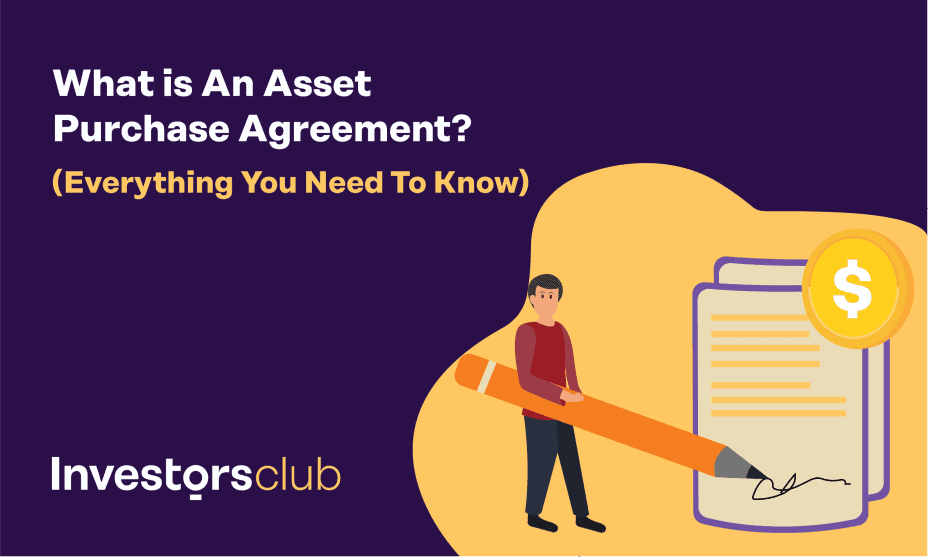The process of buying, or selling an online business for sale, can be complicated. To help simplify the process and manage the potential risks, you should make sure that you have well-drafted legal documentation in place.
The key legal document required when buying or selling an online business is an asset purchase agreement. In its simplest form, an asset purchase agreement will set out what assets are being purchased, how much for, and by what date.
In this article, we will go into more detail and explain:
- what an asset purchase agreement is;
- what makes them important;
- what the difference is between an asset purchase and a stock purchase;
- whether asset purchase agreements are legally binding;
- how asset purchase agreements protect buyers and sellers; and
- what are some of the key terms that should be included in an asset purchase agreement.
After reading this article, you will have answers to all the above questions and a better understanding of asset purchase agreements in general.
Let’s get started!
What Is An Asset Purchase Agreement?
An asset purchase agreement (also known as APA) is a legally binding contract used in the sale of a business under which the buyer agrees to purchase all or some of the assets of the business from the seller.
Typically an asset purchase agreement will set out the responsibilities of each party, such as the seller’s obligation to transfer ownership of the assets and the buyer’s duty to pay for the assets. The agreement may also specify whether the buyer will be responsible for the assumption of any liabilities associated with the assets being purchased.
It is important that any asset purchase agreement is drafted using clear and concise language so that there is no confusion about the terms of the sale.
Why Are Asset Purchase Agreements Important?
An asset purchase agreement is important as it helps the parties understand what assets are being purchased, and what (if any) liabilities are being assumed by the buyer as part of the sale.
Asset purchase agreements play an important role in helping protect both parties in the event of a disagreement or misunderstanding. By documenting the agreed terms for an asset sale and purchase, the parties can refer back to the written agreement to understand their rights and obligations.
Legal documents, such as an asset purchase agreement, are also the first point of reference for a court or tribunal hearing a dispute between parties.
What Is The Difference Between An Asset Purchase And A Stock Purchase?
Business sales are typically undertaken in one of two ways, namely via an asset purchase or a stock purchase.
Under an asset purchase, the buyer acquires all of the assets of the business, including its physical assets (e.g. equipment, motor vehicles, hardware, inventory) and intangible assets (e.g. intellectual property, goodwill, know-how).
Under a stock purchase, the buyer acquires all of the target company’s stock or shares, giving it control of the company that holds the assets and operates the business.
There are several key differences between an asset purchase and a stock purchase.
For example, under an asset purchase, the buyer has the opportunity to cherry-pick which assets it wants to acquire and can leave behind any liabilities that it doesn’t want to assume. However, the transfer or migration process for each individual asset can be an onerous task.
Whereas under a stock purchase, the buyer acquires all of the target company’s assets and liabilities. Because the buyer is buying the stock or shares of the company rather than individual assets, the completion of a stock purchase can sometimes be more straightforward.
What Should Be Included In An Asset Purchase Agreement?
At a minimum, an asset purchase agreement should include the price of the assets, what type of assets are being purchased, and the terms of the purchase. An asset purchase agreement should also state what happens if one of the parties fails to uphold their end of the agreement.
Having a properly drafted agreement will ensure that both parties are on the same page and help prevent misunderstandings throughout the sale process.
We summarize below some of the key elements usually found in an asset purchase agreement.
Operative Clause
The operative clause (also known as the sale and purchase clause) of an asset purchase agreement typically includes provisions regarding the type of assets being sold, the purchase price, and the closing date of the transaction.
The operative clause of an asset purchase agreement is an important part of the agreement, as its key purpose is to concisely set out the essential terms of the transaction. Careful drafting of this clause can help to ensure that the transaction proceeds smoothly and that both parties are protected.
Purchase Price
Depending on how the business sale is structured, the purchase price clause may be short and sweet (i.e. fixed price), or it can be very complicated (i.e. if there are any formulas used to calculate the final price).
In any case, the purchase price clause will usually include information about the consideration payable by the buyer to the seller including:
- the amount (including any taxes);
- the payment method (i.e. cash, cheque, bank transfer);
- the due date for payment; and
- details of any earn-outs or other contingent amount payable.
Representations and Warranties
In an asset purchase agreement, the buyer and seller will make certain representations and warranties about themselves and the business being sold.
These may include things like the ability of the buyer to fund the purchase, the financial condition of the business, whether there are any outstanding liabilities, and whether the seller has the right to sell the business.
The purpose of these representations and warranties is to help ensure that the buyer is getting what they expect from the deal and to give comfort to the seller that the buyer is in a position to complete the deal.
If any of these representations and warranties turn out to be false, the affected party may have grounds for legal action against the other. As a result, it is important for both buyers and sellers to carefully consider all representations and warranties they are providing and/or relying upon before signing an asset purchase agreement.
Termination
Terminating an asset purchase agreement can be a complicated process which is why your asset purchase agreement must include a clear procedure for termination.
There are many reasons why a party may wish to terminate an agreement, including a material breach of the contract by the other party or a change in circumstances that makes it impossible to complete the sale.
In some cases, the parties may simply agree to mutually terminate the agreement by giving each other notice.
On the other hand, if one party wants to terminate the agreement without the consent of the other party, they will need to follow the specific termination procedures set out in the contract. The party wishing to terminate should also be aware of any break fees or other compensation payable to the other party in the event the agreement is terminated.
Dispute Resolution
While most people go into business sale arrangements with the best of intentions, misunderstandings happen and things can go sideways pretty quickly.
This is where dispute resolution clauses come in handy.
Disputes can be resolved in several ways, depending on the severity of the issue and the willingness of both parties to compromise.
In some cases, a simple discussion is all it takes to clear up any misunderstandings and come to a resolution that everyone can agree on.
However, if the disagreement is more serious, mediation or arbitration may be necessary. This involves bringing in a neutral third party to help facilitate discussions and try to reach a resolution that is acceptable to both sides. In some cases, litigation may be the only way to resolve a dispute, although this should always be considered a last resort.
With any asset purchase agreement, it is important to clearly outline how disputes will be handled so that both parties know what to expect if an issue does arise, and what steps need to be taken to resolve the issue.
Governing Law
When two parties enter into an asset purchase agreement, they must agree on which law will govern the contract.
This is important because it will determine which court has jurisdiction over any disputes that may arise.
The choice of governing law can also have a significant impact on the interpretation of the contract and the rights of the parties. For this reason, it is important for the parties to carefully consider which law should apply and how this may affect the operation of the agreement.
Is An Asset Purchase Agreement Legally Binding?
If the asset purchase agreement has been correctly drafted and includes the required elements of a contract, it will be legally binding and enforceable.
For any contract to be binding, the following elements will need to be present:
- Offer and acceptance: There must be a clear offer (i.e. offer to buy or sell the business) and acceptance (i.e. acceptance by both parties, usually via a signature).
- Intention to create legal relations: Both parties need to be willing to enter into a legal arrangement. This is usually straightforward to establish in a commercial context, such as a business sale.
- Consideration: In the context of a business sale, there needs to be some form of consideration provided by the buyer in exchange for the seller’s promise to sell the business.
- Capacity: The parties need to have the ‘capacity’ under the law the enter into a legal arrangement. These requirements will differ from country to country but it usually means that the individuals will need to be of a certain age (i.e. not a minor), and of sound mind.
How Do Asset Purchase Agreements Protect Buyers And Sellers
As mentioned above, asset purchase agreements play an important role in helping protect both parties by documenting the agreed terms for an asset sale and purchase. This gives the parties the ability to refer back to the written agreement to understand their rights and obligations under the contract.
For a buyer, an Asset Purchase Agreement may provide protection if the buyer discovers that the seller misled them about certain aspects of the business assets (e.g. the quality and/or quantity of website traffic of the business). If this happens, the buyer can refer back to the Asset Purchase Agreement to see if there are any representations or warranties breached by the seller and what (if any) remedies are available to the buyer as a result of the breach.
Asset Purchase Agreements may also include provisions that protect sellers from any future claims made against the business. For example, the Asset Purchase Agreement should include limitations on the buyer’s ability to make claims against the seller. These will usually include a time imitation (i.e. claims cannot be made after a certain amount of time has passed since closing the deal) and monetary limits (i.e. the maximum amount the buyer can claim will be a certain percentage of the purchase price).
Does Investors Club provide Asset Purchase Agreements?
The benefit of buying or selling your online business through a platform like Investors Club is that we can provide you with an expertly drafted asset purchase agreement and other necessary done-for-you legal documents.
Final Thoughts
Buying or selling an online business is an exciting (albeit challenging) experience.
While having the right legal documentation in place is important, having the right people in your corner to help you through the process is also crucial to a successful exit.
Get in touch with us today to learn more about how Investors Club can help you with the sale of your online business.

M&A, Technology, Corporate Advisory
Luke is a Senior M&A Lawyer with one of the world’s largest professional services firms. When he is not solving tricky legal issues in his day job, he is hard at work on Luke’s Guide, a blog that helps guide entrepreneurs through the process of buying and selling online businesses. In his spare time, Luke enjoys long distance running and reading.
Connect with Luke:
Linkedin | Luke’s Guide

